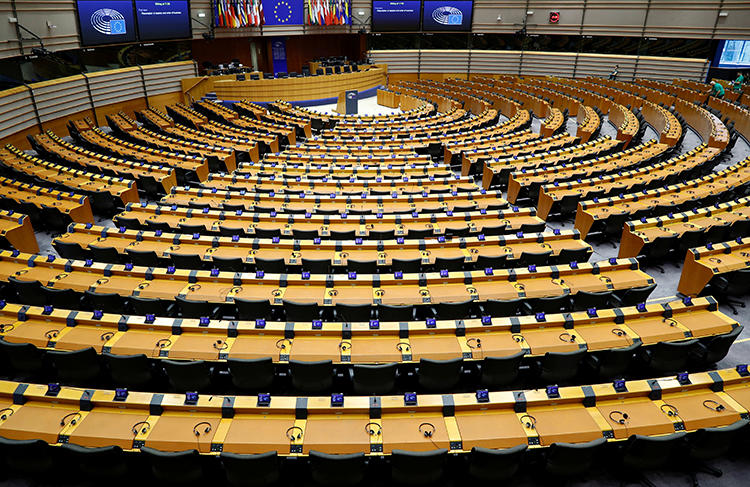Brussels, March 11, 2020—The European Parliament should strengthen protections for journalism in draft legislation on terrorist content online, the Committee to Protect Journalists said today.
An internal EU document leaked by Politico on March 6 appeared to show that proposed amendments to a draft EU regulation dealing with terrorist content online fail to fully reflect input from media and civil society groups. The regulation is pending final negotiation with other EU institutions.
The leaked amendments, which CPJ has reviewed, do not include independent judicial review of requests to delete or hide such content—a requirement that was previously included and based on feedback from rights groups. The draft suggests government officials in any EU country could ask service providers who host content to take it down within one hour, an approach that CPJ and other advocacy groups say significantly limits the scope for assessment or appeal. The requests could be implemented across borders throughout the European Union, according to the leaked draft.
While the draft reviewed by CPJ says the regulation will not apply to content disseminated for journalistic purposes and will take freedom of the media into account, it does not explain how. Journalistic content and the source material necessary in order to report and verify the news can be subject to removal in efforts to combat terrorist and violent extremist content online, as CPJ has reported.
“The European Parliament must demonstrate that protecting journalists’ rights in the fight against illegal content really matters, both for the EU and for other governments around the world,” said Tom Gibson, CPJ’s EU Representative. “Now is the time for elected officials to insist on judicial oversight and resist far-reaching provisions which could have a problematic impact on journalists and the news for years to come.”
CPJ emailed Patryk Jaki, the European Parliament’s Committee on Civil Liberties, Justice and Home Affairs rapporteur on the terrorist content online regulation, to confirm the veracity of the document published by Politico, but did not hear back before publication.
Automated tools to prevent the publication of flagged and illegal content, such as upload filters, are not required in the latest draft, though they had previously been put forward by the European Commission. The international digital rights group Access Now has found that such filters fail to fully assess context, can restrict legitimate content, and that their misapplication can easily lead to the censorship of journalists.
